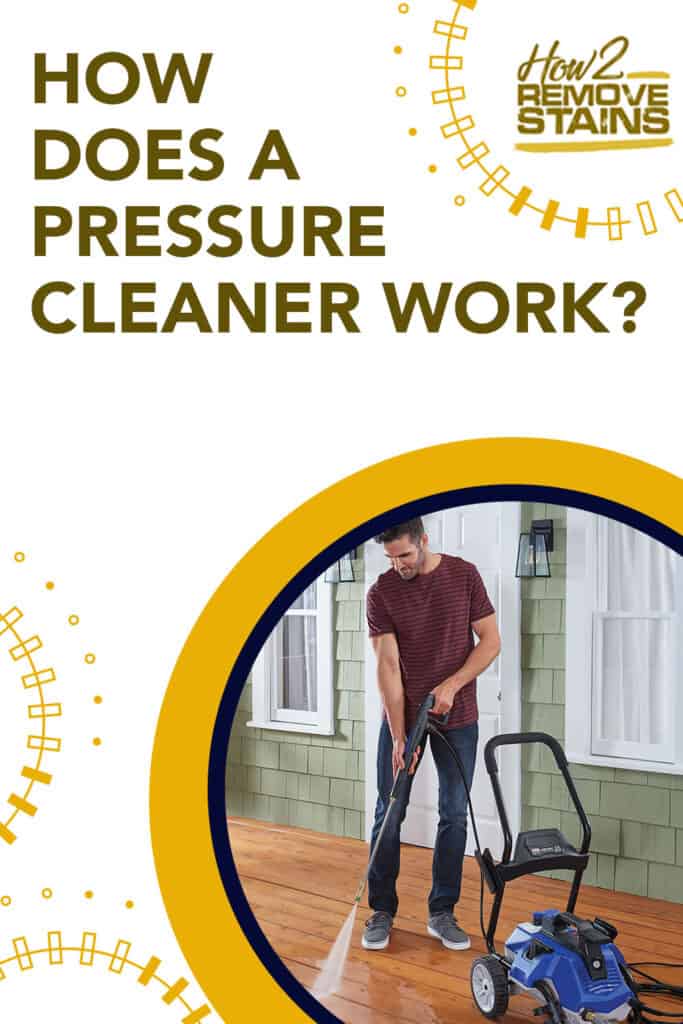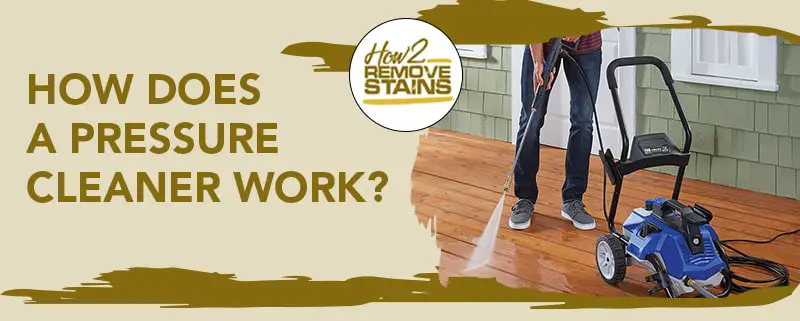Whenever you are investing several hundred dollars into a piece of machinery that you plan on using for numerous years to follow, you are going to want to make sure that you fully understand how the machine works.
To put it simply, pressure washers work by first taking in the water through an input (often a connection to your hose) along with the detergent that you are using, and then either an electric motor or gas engine will begin to power the water pump, mixing the water and detergent together and in the process, heating it up to about 125 to 155 degrees Fahrenheit (50 to 70 degrees Celsius). The water will then exit the pump through the reinforced nozzle, which is often designed to help add more pressure to the water coming out so that you can effectively clean a surface.
[adinserter name=”Best electric pressure washer”]
Table of Contents
How Does a Pressure Cleaner Work?
Breaking this down a little bit more, you will first begin by adding a detergent or soap that is suitable for the surface that you are cleaning. In some cases, a more sensitive surface or a surface that is more heavily caked with dirt and grime will warrant a different detergent than your standard detergent. On most typical pressure washers, there is a specific input for the detergent that will be connected to a bottle that you will fill with the detergent.
From here, and assuming that you have properly connected the pressure washer to your water supply, you will want to turn the water on. As most people will be connecting their pressure washers to their outdoor faucets for ease of portability, you won’t have to do much aside from making sure that the connection is secure. Your pressure washer should have another hose that you will use to filter that water into the washer itself.
Depending on the nature of your pressure washer, things will change a little bit at this step. Inside of your pressure washer, you will either have an electric motor or a diesel engine.
Electric pressure washers
Electric pressure washers are going to rely on the electricity-based motor, while gas-powered pressure washers will rely on a diesel engine to get the job done. If you have a gas-powered pressure washer, you will need to make sure that you have enough fuel to power the engine. Once this engine turns on, it will start the water pump, which is also commonly referred to as the impeller.
When the impeller is powered, it will begin drawing in both the water and the detergent that you have added to the pressure washer, mixing them together in the process to produce a mixture that will easily clean the surface in front of you. Because of the proximity to the power source, the water often becomes heated as well.
This is something that you want, as hot water is much more effective at removing grime from surfaces. Just think about how much easier it is to clean dirty dishes when you opt to use warm water from the tap.
Finally, the impeller will push the mixed water toward the nozzle of the exit hose. You will usually choose a specific nozzle for your pressure cleaning purposes, with that nozzle dictating how much pressure the water is going to come out at.
These nozzles are designed to drastically increase the amount of pressure the water has, allowing it to come out forcefully enough to clean any surface you need. You can usually expect that the narrower the nozzle is, the higher the pressure is going to be.
More questions about Pressure Cleaners
Is a Gas or Electric Pressure Washer Better?
Whether a gas or electric pressure washer is better than the other is going to depend heavily on your circumstances. Electric pressure washers are more affordable and easier to move than their gas-powered counterparts, but they also need to be tethered to a power source and they do not last as long. On the other hand, gas-powered pressure washers will need you to make a regular investment into fuel and they are more expensive, but they will be more powerful, last longer, and be better quality for more heavy-duty jobs.
Which Nozzle Should You Use?
The type of nozzle that you will choose for your pressure washer will depend on what purpose you are using the pressure washer for in the first place for. Surfaces such as concrete and asphalt, that are durable and can have a massive build-up of grime may require a higher pressure, while more delicate surfaces such as windows and wood may require a lower pressure to reduce the chances of anything going wrong.
Which Pressure Cleaner Is Easier to Maintain?
For what it is worth, it is often easier to maintain an electric pressure washer. While they are built to last for a fair amount of time, they are also meant to break down eventually, meaning that at a certain point, you won’t have to give a second thought to maintenance anymore. With gas-powered pressure washers, you are going to have to consider when you want to give up on maintaining a powerful engine, which can be a hard financial decision to make.


